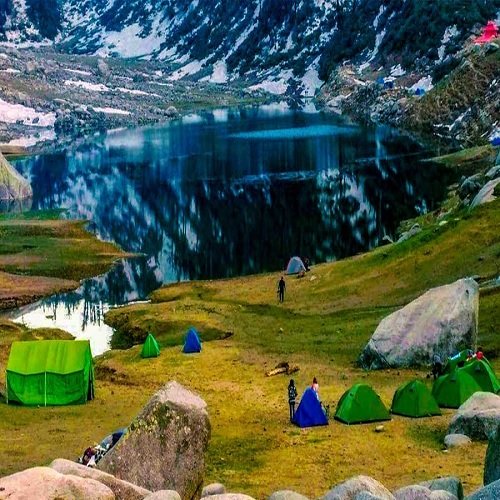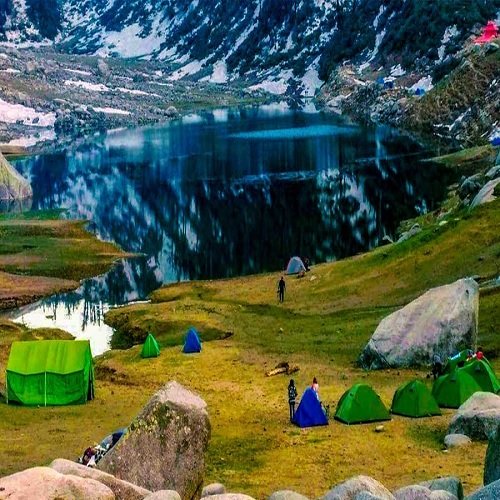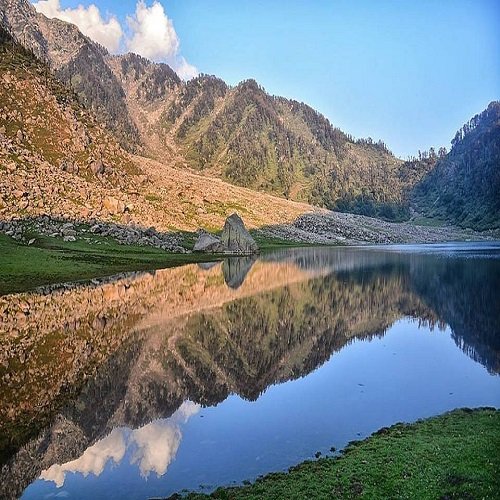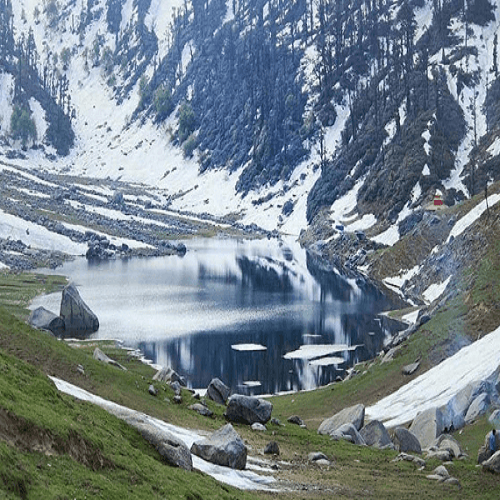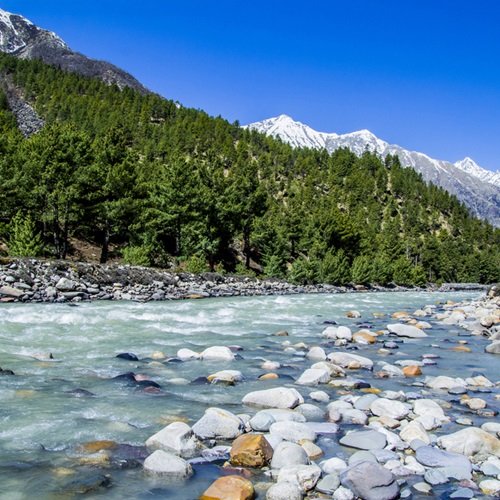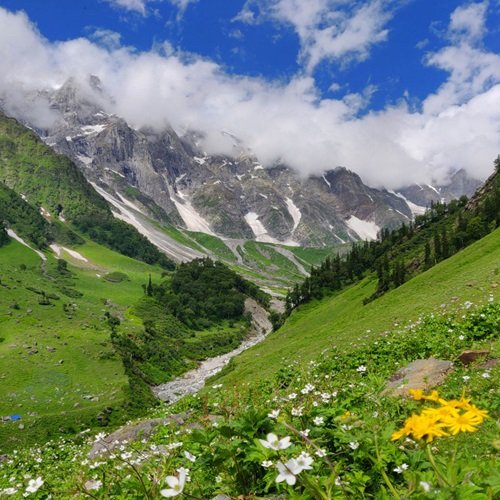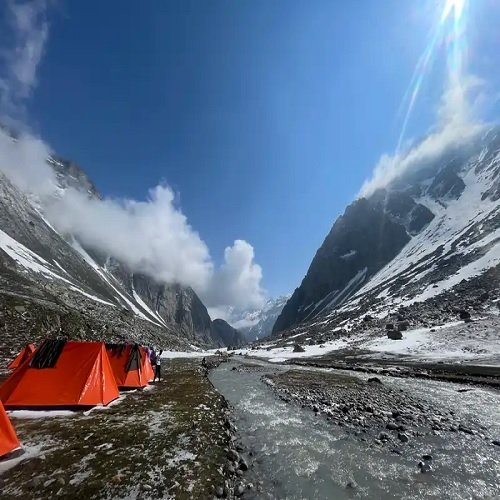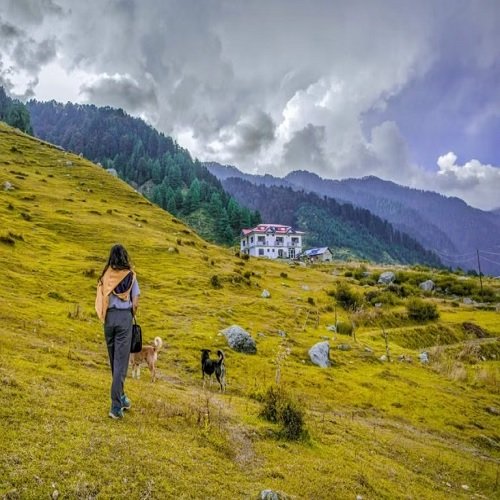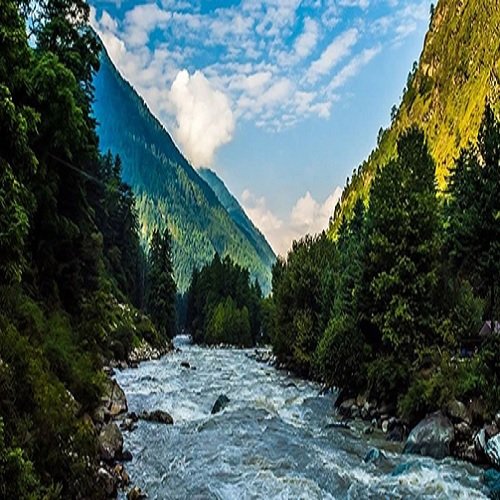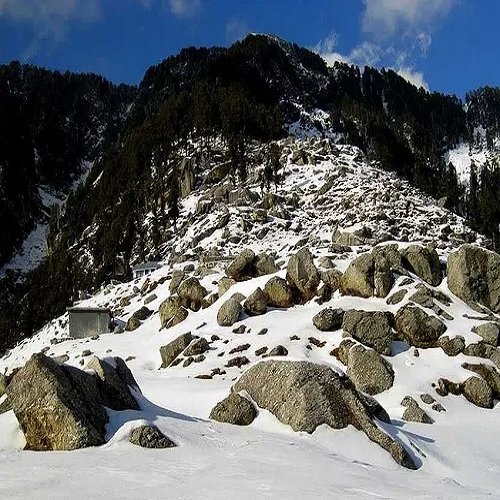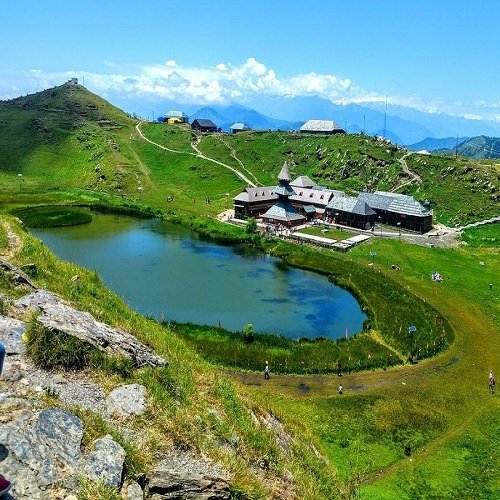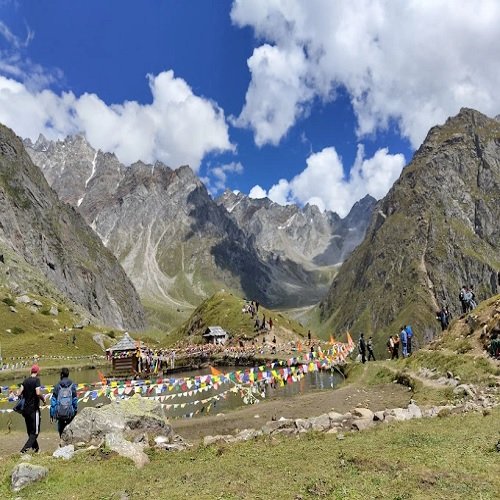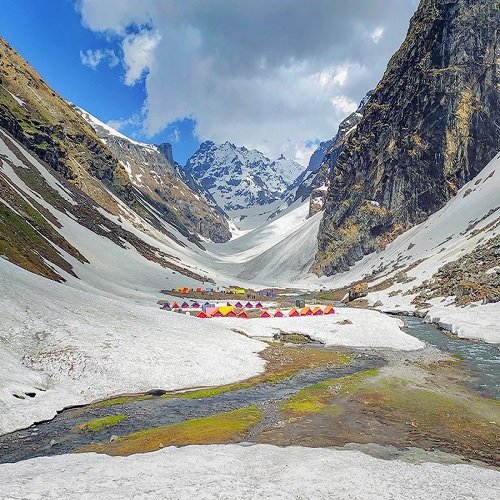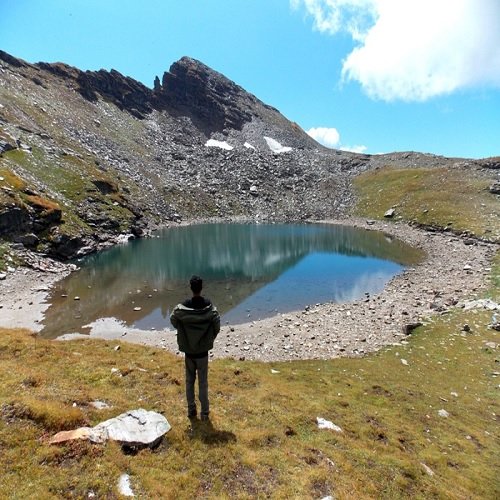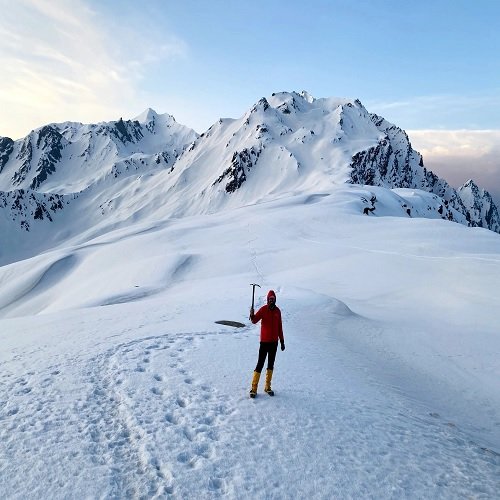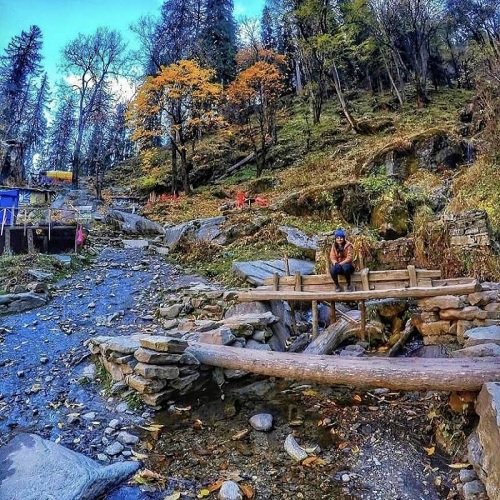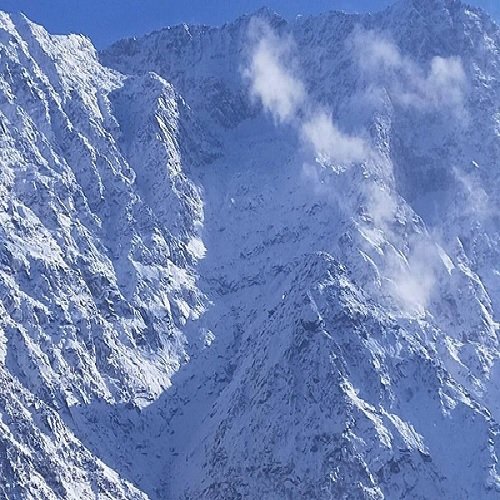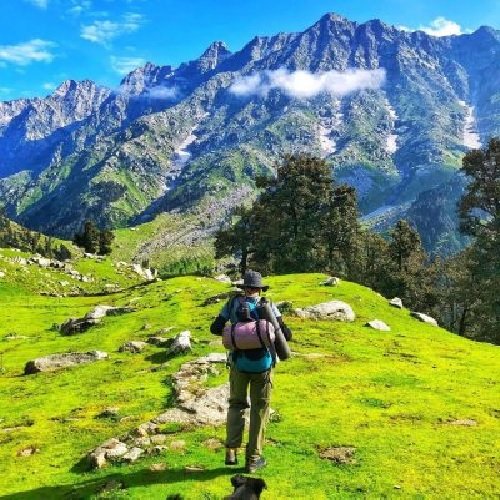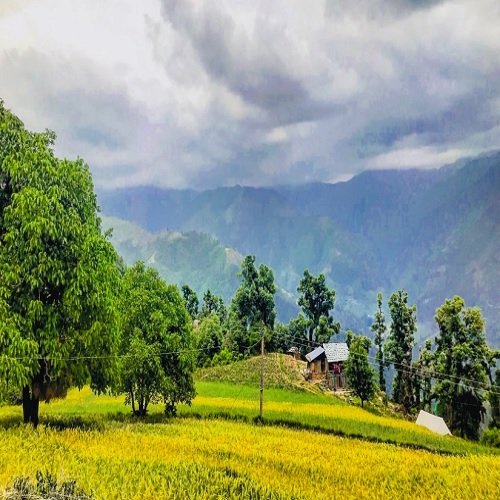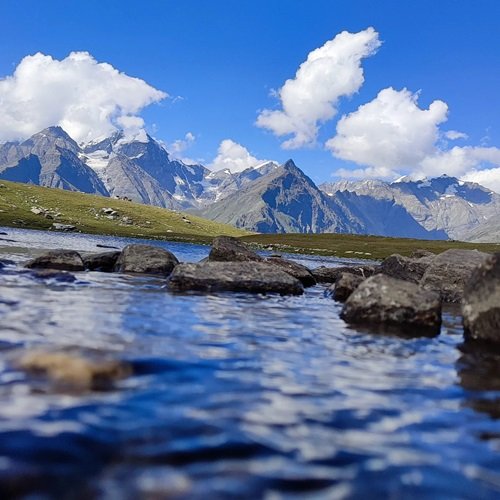Kareri Lake Trek
Overview
Itinerary
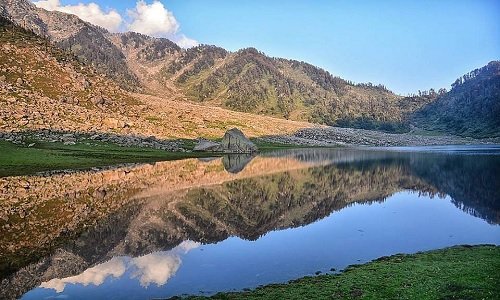
You will start your trek by meeting your guide at Kareri Village or Nohli Bridge. The trail enters a coniferous forest of pine, oak and rhododendron. Approximately halfway at Reoti, you can rest and then continue the trek towards Kareri Lake. The final stretch is rockier as you approach the lake. After reaching the lake, you will stay in the tents for the night.
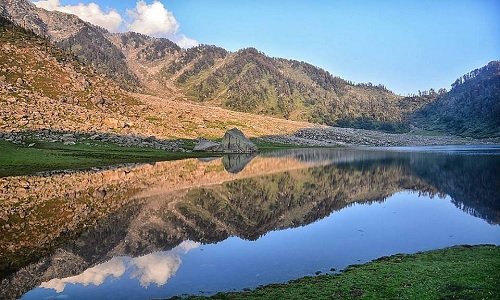
Begin your day with a beautiful sunrise over Kareri Lake. After having tea and breakfast by the lakeside, you will return to Kareri Village on the same enchanting forest trail. Descending to Kareri village will take almost half the time you took to climb the trail. After reaching kareri village in the afternoon, you can proceed to your next destination.
FAQ
Trekking Shoes (prefered waterproof) – 1 pair Comfortable Pants – 1 unit Lower – 1 unit Thermals – 1 pair T-shirt – 2 units Jacket – 1 unit Umbrella or raincoat – 1 unit Sunglasses – 1 unit Toiletry Kit (Tooth Paste, Tooth Brush, Soap, Toilet Paper, cold cream etc ) A light backpack – 1 unit Chocolates and Nuts as required Energy drink or Glucose as required Power bank
If you opt for the 2 Days/1 Night Kareri Lake Trek package, you should be fit enough to walk throughout the day. Otherwise, you can choose the 3 Days/2 Nights package, which includes an additional overnight stay at Reoti on the way to Kareri Lake. In winter, we may shift the night stay to Reoti (Midpoint) or further below if the trail gets blocked due to heavy snowfall during the trek. There is no water shortage throughout the Trek, so keep yourself hydrated by drinking plenty of water from the natural stream. Only dry pit toilets are available at Kareri Lake or Reoti. Carry a first aid kit and medical supplies according to your needs. We may cancel your trek without notice if the climatic conditions are unfavourable. In such a case, you can choose either the next subsequent date or an alternate trek suggested by the guide. Do not litter on the Trails; help us preserve nature.
Kareri Lake or Kumarwah Lake is a mid-altitude lake located in Dhauladhar Ranges of the Himalayas in Kangra region of Himachal Pradesh. Earlier the area around this lake was used by Gaddi shepherds to graze sheep and cattle. They also built a temple for Goddess Kareri. Every year on Janamashtami a function is organised at the temple by the local people of Kareri Village where every visitor is served with a free meal. Kareri Lake is now one of the famous trekking destinations of Dharamshala at an altitude of 2940 m above sea level. The Trek starts from Kareri Village which is 24 km away from Dharamshala Bus Stand.
Take a bus or flight from Delhi to reach Dharamshala. Book a cab to Kareri village from Dharamshala. Take the unpaved path towards Reoti. Follow the route further to reach Kareri Lake. It’s better if you hire a guide or book the trek in advance if you are going for the first time.
Why Choose Fun Day Tour
- All in one platform
- Never Settle for Average
- Truly Unique Experiences
Confirmation Policy
- Upon booking, the traveller will receive a confirmation voucher via email, within 24 hours.
- In the special cases of slots not being available, feasible alternatives will be provided to the customer, in regards to the customer’s preference. In such cases, a new voucher would be sent via email, consisting of the new travel details.
Refund Policy
- Any refund applicable will be processed within 7 business days.
Cancellation Policy
- Any cancellation made 25 days before the date of departure, would levy 15% of the total tour cost as cancellation charges.
- Any cancellation made within 15-25 days before the date of departure, would levy a 25% of total tour cost as cancellation charges.
- Any cancellation made within 7-15 days before the date of departure, would levy 50% of the total tour cost as cancellation charges.
- Any cancellation made within 0-7 days before the date of departure, would levy 100% of the total tour cost as cancellation charges.
- Due to any restrictions such as sudden government policies or regulations, health hazards, medical emergencies, or unprecedented weather conditions, activities and tours may be nonoperational and be canceled. In cases such as these, operators will attempt to cater to the traveler as an alternate, which is feasible in nature. However, any refund would not be catered.
Advisory
- Stay hydrated: Carry enough water and other fluids to stay hydrated throughout the yatra. It's important to drink water regularly, especially at higher altitudes.
- Check the weather: The weather conditions in the Kedarnath region can be unpredictable, so it's important to check the weather forecast before starting your journey. Avoid traveling during the monsoon season (July to September) when the region experiences heavy rainfall and landslides.
- Acclimatize properly: Kedarnath is located at an altitude of over 11,000 feet, so it's important to acclimatize properly. Spend a couple of days in nearby towns like Guptkashi, Gaurikund, or Sonprayag before starting the yatra.
- Pack wisely: Pack light and carry only the essentials. Make sure you have enough warm clothes, sturdy shoes, sunscreen, and a first-aid kit. You can also rent or buy trekking equipment from nearby towns.
- Follow the Yatra route: Stick to the designated Yatra route and avoid taking shortcuts. This helps preserve the fragile ecosystem of the region and minimizes the impact on the environment.
- Respect local customs: Kedarnath is a holy site for Hindus, and it's important to respect the local customs and traditions. Dress appropriately and seek permission before entering any religious sites.
- Hire a guide/porter: Hiring a guide or porter can make the Yatra easier and safer. They can provide valuable information about the Yatra route, carry your luggage, and help in case of an emergency.
- Be prepared for emergencies: The Kedarnath Yatra is remote, and medical facilities are limited. Carry a first-aid kit and any necessary medications. It's also a good idea to have a satellite phone or other communication device in case of an emergency.
- Leave no trace: Respect the environment and leave no trace behind. Carry all your trash and dispose of it properly at the end of the yatra.

